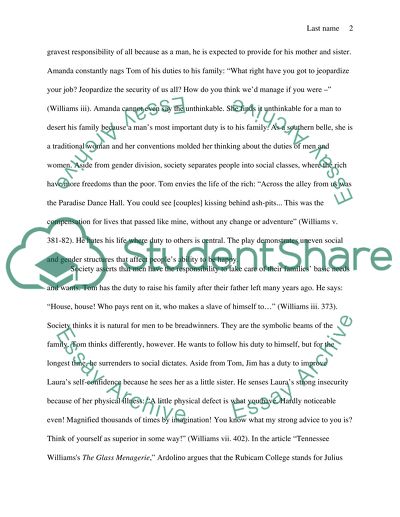Cite this document
(“The Glass Menagerie Term Paper Example | Topics and Well Written Essays - 2000 words”, n.d.)
Retrieved from https://studentshare.org/english/1460077-the-glass-menagerie
Retrieved from https://studentshare.org/english/1460077-the-glass-menagerie
(The Glass Menagerie Term Paper Example | Topics and Well Written Essays - 2000 Words)
https://studentshare.org/english/1460077-the-glass-menagerie.
https://studentshare.org/english/1460077-the-glass-menagerie.
“The Glass Menagerie Term Paper Example | Topics and Well Written Essays - 2000 Words”, n.d. https://studentshare.org/english/1460077-the-glass-menagerie.


